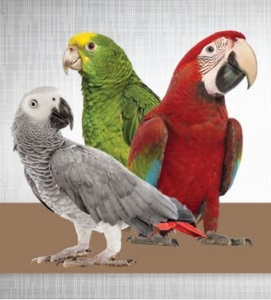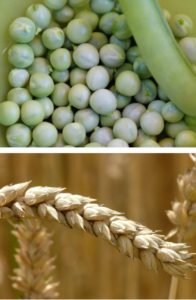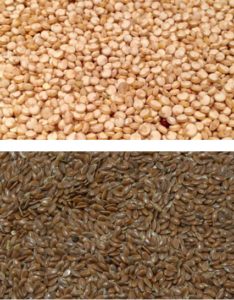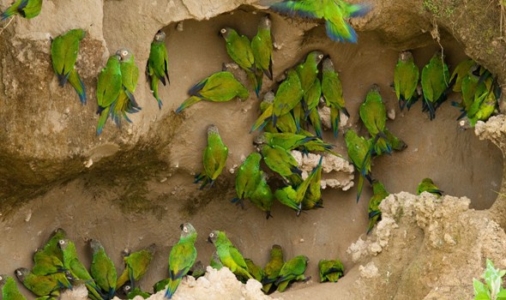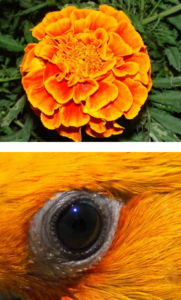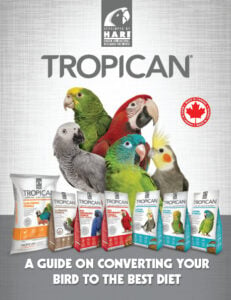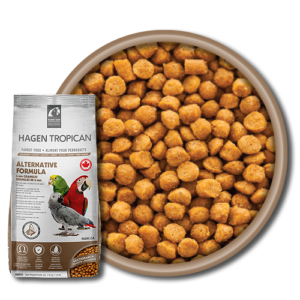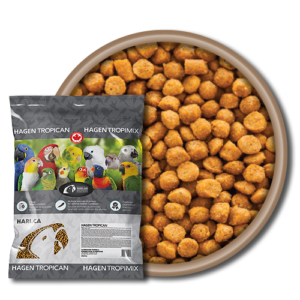We at the Hagen Group take your privacy very seriously and as such we have updated our privacy and cookies policy to make it clearer how we use your personal data, including how we use cookies and similar technologies (“cookies”) to help give you the best experience on our site and to show you relevant advertising. If you continue to use this site, we’ll assume that you’re happy to receive all cookies. Privacy Policy
Alternative Formula
PREMIUM DAILY NUTRITION FOR ALL ADULT LIFE STAGES
Tropican Alternative Formula provides proper daily nutrition for Adult and Senior Parrots who are diet challenged, require lower protein and fat content (versus High Performance formula), have less active lifestyles, or who have protein sensitivities.
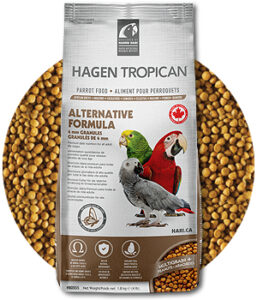 What makes the Alternative formulation different than Tropican Lifetime and Tropican High Performance formulas?
What makes the Alternative formulation different than Tropican Lifetime and Tropican High Performance formulas?
- Alternate protein sources: pea and quinoa
- Formulated with no soy or corn
- Higher amount of bentonite clay
- New ingredients such as walnuts, maple syrup, cranberries, sunflower oil, sweet potato, wheat germ oil, pumpkin seeds, marigold extract
- Higher levels of omega 3, 6 and Beta-carotene
- Darker brown pellets
… all this results in optimum feather structure growth, vivid colors and luster!
A Unique Formulation to Maintain a Healthy Lifestyle
Alternative Formula, a diet with 15% protein was developed for companion birds who are diet challenged, adult, and/or senior. It’s an excellent soy-free diet that is rich in pea and quinoa as alternative sources of high quality protein. Peas are a premium source of protein due to their high digestibility score and they provide a great complementary amino acid profile when combined with the other plant derived proteins (wheat, rice) found in the Alternative Formula. Natural ingredients such as peanuts, sweet potatoes and pumpkin seeds are included to increase the palatability for Parrots. A rich source of Omega fatty acids from flaxseed & peanuts makes feathers shine and helps support a healthy body. The bentonite clay (montmorillonite) found within the Alternative Formula is effective and powerful in assisting ailments in Parrots who are diet challenged.![]()
But How Does It Taste?
Parrots have significantly more taste buds than chickens, so why do many diets look and taste like chicken feed?
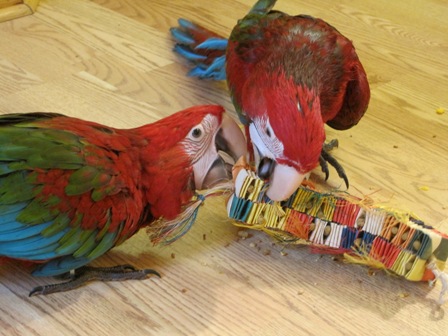 Unlike farm pellets these granules break cleanly and do not explode into fine powder like pellets do. The parrot is able to hold the rest of the morsel and eat the piece it broke off. Again this difference results in a benefit to the consumer as significantly less wastage is associated with Tropican.
Unlike farm pellets these granules break cleanly and do not explode into fine powder like pellets do. The parrot is able to hold the rest of the morsel and eat the piece it broke off. Again this difference results in a benefit to the consumer as significantly less wastage is associated with Tropican.
Some bird owners find it hard to feed their bird uniform, formulated diets. Tropican’s generous levels of important nutrients allows it to be diluted (up to 20 percent on a weight basis) by the addition of fruits and vegetables. Tropican is a hard dense granule which parrots enjoy biting into. Tropican Alternative Granules ensure that fussy eaters get a full balanced diet. Since Tropican incorporates vitamins and minerals, a vitamin supplement is not needed.
Proudly Canadian Made
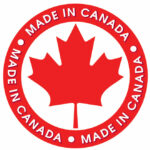 We are very proud of Tropican’s outstanding 30+ year tradition of raising thousands of parrots over several generations at HARI. At a time when most bird food companies have shut their research centers, HARI continues its ongoing work on the research and development of advanced bird nutrition. In fact, HARI is the longest-standing research facility dedicated to studying the care and breeding of parrots.
We are very proud of Tropican’s outstanding 30+ year tradition of raising thousands of parrots over several generations at HARI. At a time when most bird food companies have shut their research centers, HARI continues its ongoing work on the research and development of advanced bird nutrition. In fact, HARI is the longest-standing research facility dedicated to studying the care and breeding of parrots.
Tropican uses only the freshest grains and legumes from the most recent crops.
Ingredients are sourced locally, which means consumers get fresher food faster. In addition, the fact that it’s now made in close geographical proximity to HARI, located in Rigaud, means quicker turnaround times for final HARI quality assurance approvals and enhanced freshness-to-market efficiencies.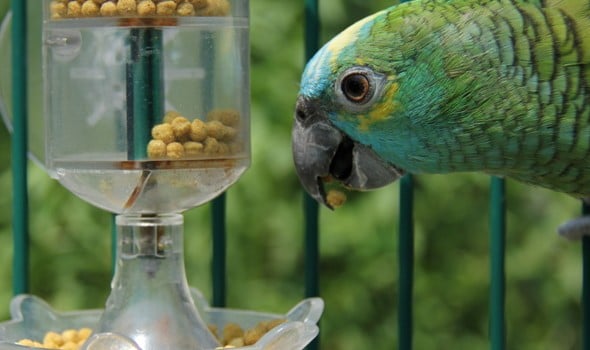
At HARI, Quality Control is a 3-Step Process
Did you know that EVERY SINGLE LOT of Tropican food formulations developed at Hagen Industries are tested and fed to HARIs own flock?

Highest Quality Ingredients and First-Rate Quality Control Processes Mean Premium Quality Foods
Nutritional/Chemical Assay – Raw Material ControlRaw ingredients are inspected, analyzed, and tested for nutrient |
|
Biological Assay – In Process ControlBlended/extruded ingredients are sampled and tested |
|
HARI Flock Feeding Trials – Final Product ControlReady to be packaged lots are sent to be tested for final |
This process is part of the Hagen Industries/HARI Quality Assurance & Food Safety Guarantee, to ensure your bird is always getting safe, dependable, nutritious food. If it doesn’t have the flocks’ final approval, it doesn’t leave the Hagen Industries plant!
For more in-depth information on the scientific development of Tropican Formulated Diets read Avian Nutrition: Trends and Philosophies, by HARI Director, Mark Hagen
Recommended Species
AFRICAN GREYS • AMAZONS • COCKATOOS • CONURES • ECLECTUS • QUAKERS • MACAWS • PIONUS
Who can benefit from Alternative Formula?
Alternative Formula is suitable for Parrots who have less active lifestyles and/or who are diet challenged. It can also be fed to adult and senior Parrots requiring lower protein and fat content and to non breeding, non molting birds. Read our 6 Healthy Reasons for Tropican Alternative Formula.
The Alternative Formula is not recommended for Iron sensitive species such as Toucans.
View the photo gallery below to learn more about the benefits of providing Tropican Alternative Formula to your pet bird.
Feeding Guide
To keep your pet bird healthy, monitor your pet bird for daily consumption of Tropican Parrot food. Food and water cups should be washed daily. Tropican extruded granules, sticks and/or biscuits should be replenished as needed. For nutrition recommendations when feeding pet birds, download the pdf version of the Tropican Feeding Guide for Parrots.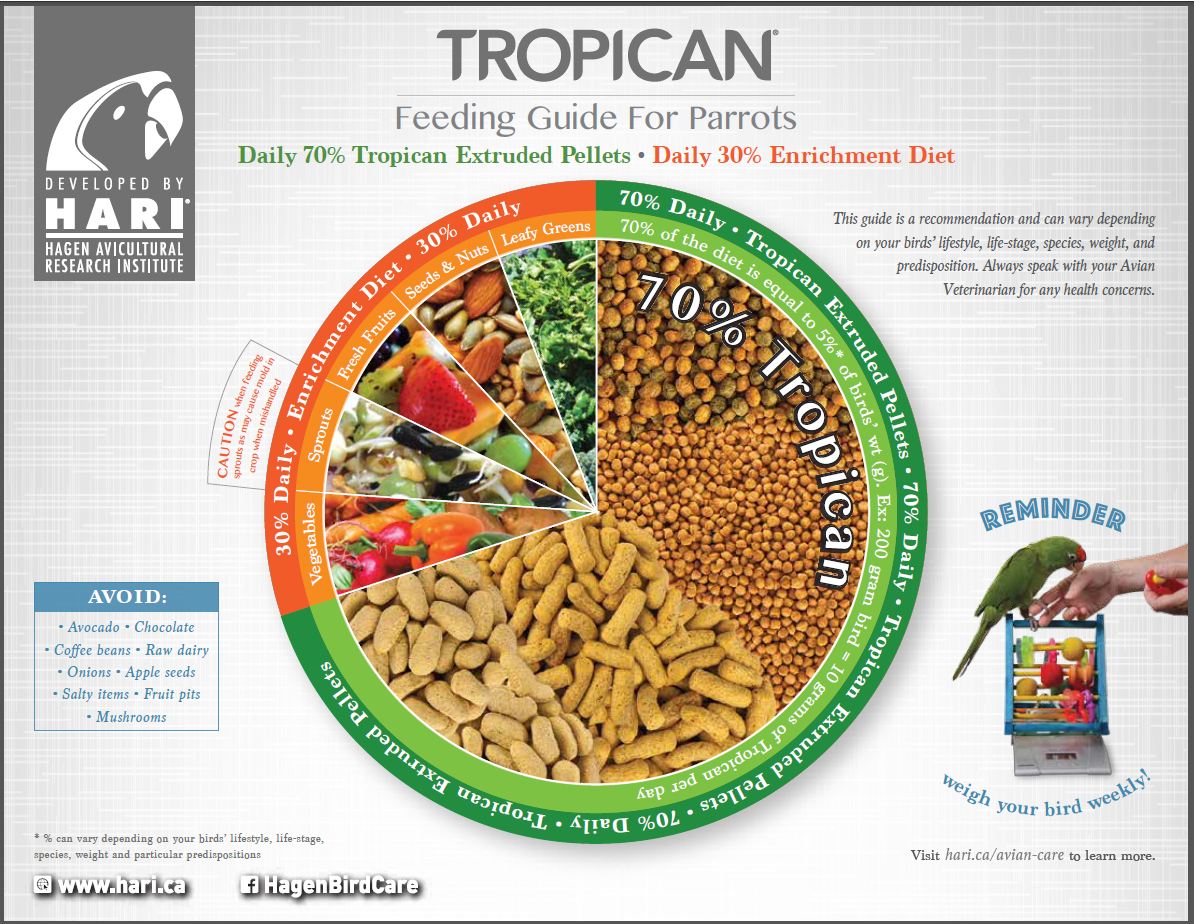
A Guide on Converting Your Bird to the Best Diet
Ensure that your pet bird is in good health. Changing a bird’s diet can be stressful, even if changing the diet will help his condition. Since birds are masters at hiding their illnesses, the stress incurred during a diet change can catapult the bird into a worse condition. There are many methods to convert parrots to a new diet.
The success of one method over the other depends on the number of birds, the compliance level of the owner, and most importantly, the consistency of the caretaker. Usually, a diet change is necessary to prevent malnutrition in parrots, and a veterinarian usually plays an instrumental part in a bird’s diet change. Here are some suggestions to get your birds on a healthier diet!
Download the Tropican Conversion Guide
Bird Nutrition: Parrot Diets – How much Tropican bird food should your pet bird be eating?
While the HARI Flock eats 100% Tropican daily, for most companion pet birds we recommend that their diet consist of 70% Tropican Extruded Pellets and 30% for enrichment food such as seed & nut mixes, fresh fruits and vegetables, leafy greens, sprouts and of course Tropimix!
Note that this is a recommendation and can vary depending on your birds’ lifestyle, life-stage, species, weight, and predisposition. Always speak with your Avian Veterinarian for any health concerns. Breeder and Juvenile parrots might require a little more Tropican.
Once your bird has converted to a pelleted diet, Tropican extruded pellets should be offered in clean dishes adlib throughout the bird’s living quarters. You can also provide foraging opportunities by hiding the food in toys or foraging trays. To monitor your pet bird’s daily consumption of Tropican, keep extruded diet in separate bowls/dishes from the 30% enrichment foods. This will also help reduce spoiling the food.
Should every parrot species be fed a daily recommendation of 70% of Tropican?
While Tropican diets offer an excellent foundation in optimal nutrition for most parrots, caretakers need take into consideration species specifications, as well as lifestage levels, for their birds. Some parrot species do well with a higher percentage of seed in their overall diet. For those birds, and especially birds fed predominantly seed diet, we recommend that caretakers offer Prime Vitamins and Mineral supplement. Plus, breeding parrots or juveniles need a higher level of proteins and other nutrients for optimal health.
Enrichment foods – The Remaining 30% of the Diet
Let’s talk about the remaining 30% of your bird’s diet, the enrichment portion. Perhaps the 30% ratio of enrichment food for your parrot doesn’t sound like much. Keep in mind, the HARI recommendation of 70% Tropican to 30% enrichment foods is in reference to caloric needs and not volume.
Enrichment Foods: Fruits and Vegetables
Our parrots love their fruits and vegetables, and of course, caretakers love to offer these yummy items to their parrots. While fruits and vegetables, organic or not, seem like a natural part of any parrot’s enrichment diet, we do caution caretakers about using proper hygiene in produce preparations. We especially want to share our concerns with overfeeding too much fruit and vegetables that contain high amounts of naturally occurring sugars.
Ingredients
Wheat, brown rice, pea protein, dehulled peanuts, sweet potato, barley, pumpkin seeds, montmorillonite clay, dried tomato, sunflower oil (preserved with mixed tocopherols), maple syrup, calcium carbonate, dicalcium phosphate, quinoa, yeast culture, dried kelp, cranberry, walnut, L-lysine, yeast extract, choline chloride, DL-methionine, green tea extract, wheat germ oil, lecithin, carotenoids, marigold extract, algae extract (source of DHA fatty acid), rosemary extract, biotin, vitamin E supplement, niacin, calcium L-ascorbyl-2-monophosphate, zinc oxide, manganous oxide, d-calcium pantothenate, vitamin B12 supplement, beta-carotene, copper sulfate, pyridoxine hydrochloride, thiamine mononitrate, inositol, folic acid, vitamin A supplement, calcium iodate, sodium selenite, vitamin D3 supplement.
Guaranteed Analysis
| Crude protein (min.) | 15% |
| Crude fat (min.) | 9% |
| Crude fiber (max.) | 5% |
| Moisture (max.) | 10% |
| Calcium (min.) | 0.8% |
| Phosphorus (min.) | 0.6% |
| Iron (max.) | 290 mg/kg |
| Vitamin A (min.) | 5,000 IU/kg |
| Vitamin D3 (min.) | 500 IU/kg |
| Vitamin E (min.) | 200 IU/kg |
| Beta-Carotene (min.) | 600 mg/kg |
| Omega-3 Fatty Acid (min.) | 0.4% |
| Omega-6 Fatty Acid (min.) | 3% |
Constituents
Composition: Cereals, vegetable protein extract (pea protein concentrate 15%), nuts (peanut 6%, walnut 0.5%), minerals, vegetables (sweet potato 5%), seeds (pumpkin seed 4%, quinoa 0.5%), oil & fats (sunflower oil 1.8%, wheat germ oil 0.1%), derivatives of vegetable origin (marigold extract 0.025%), yeasts, algae (kelp 0.5%).
Additives per kg: Nutritional additives: vitamin A (3a672a) 7,500 IU, vitamin D3 (3a671) 600 IU, vitamin E (a-tocopheryl) (3a700) 500 IU, iodine (E2) 1 mg, copper (E4) 12 mg, manganese (E5) 126 mg, zinc (E6) 146 mg, selenium (E8) 4.0 μg.
Analytical constituents:
| Crude Protein | 15% |
| Crude Fibre | 5% |
| Crude Fat | 9% |
| Inorganic matter | 7,5% |
| Vitamin A | 5,000 IU/kg |
| Vitamin D3 | 500 IU/kg |
| Vitamin E | 200 IU/kg |
| Beta-Carotene | 600 mg/kg |
| Omega-3 Fatty Acid | 0.4% |
| Omega-6 Fatty Acid | 3% |
Available Sizes
| 80555 | Tropican Alternative Parrot Food – Granules | 1.8 kg | 4 lb |
| 80556 | Tropican Alternative Parrot Food – Granules | 9.07 kg | 20 lb |
Storage Instructions
For maximum freshness, once opened, store in a cool, dry place. Our safe and effective CO2 treatment and air barrier bags ensure insect control and freshness. Manufactured in a facility that packages products containing nuts.
Popular Articles
-

HARI/Loro Parque Lifetime Membership Sponsorships
HARI/Hagen Group Announces Loro Parque Foundation Lifetime Membership Sponsorship of Dr. Lora Kim Joyner of One Earth Conservation and Enrique Pucci of Ara Manzanillo
Read More -
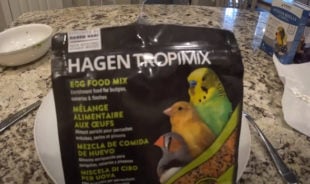
Supercharged Egg Food for Birds
Supercharged egg food recipe for caged and aviary birds.
Read More -
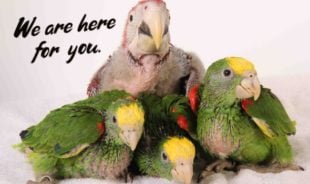
Our Promise To You During COVID-19
With growing global concerns around COVID-19 (“coronavirus”), we hope you, your family and your precious pets remain healthy and safe. With so many unknowns presented during COVID-19, we want to provide you with an update on our response to date and our commitment to you moving forward.
Read More




